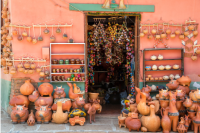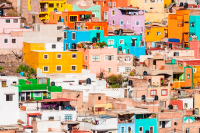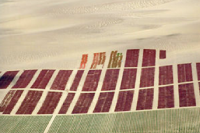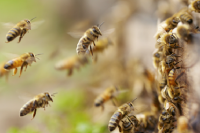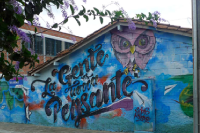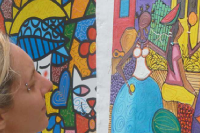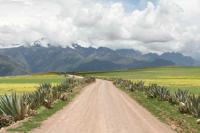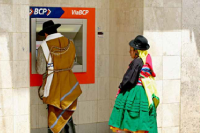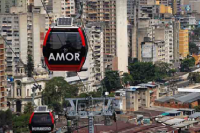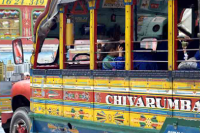 13 Jun-13 Jul & 25-29 Jul 2022 13 Jun-13 Jul & 25-29 Jul 2022  E-learning & Study Visit | 12th edition [acceder al contenido en español] E-learning & Study Visit | 12th edition [acceder al contenido en español]
Building local change strategies in Latin America and the Caribbean
The institutions that have been promoting the Summer School for a decade have decided to maintain their commitment for the year 2022 and prepare the Summer School in a blended format (online + field visit), convinced that the recovery from this great crisis will continue only relying on the reconstruction and relaunching of the local communities, counting on the best capacities ready to do so.
The 2022 edition was organised in two stages:
-
The E. Summer, from 13 June to 13 July 2022 through an online learning and exchange platform (4 modules, one per week with supporting material on the platform and dialogue with Latin American experts).
- Study Visit to Trento (IT) from 25 to 29 July 2022.
Background
The central theme of the Summer School is the promotion of "local development", understood as the public and private actors’ intervention on the assets present in a given territory (Territorial Capital) which, based on processes of change and transformation that incorporate the principles of the Sustainable Development Goals of the United Nations, allows to improve the well-being of the residing communities.
The role and the strategic capacity of local actors, together with the commitment to collaborate and coordinate actions towards the design of a "shared future”, represent key elements of development processes rooted in local contexts, in which differences should be exploited as opportunities rather than considered as barriers.
In this way it is possible to promote strong ties between regions and communities; and to design development strategies with a multi-dimensional nature, able to integrate the different dimensions – cognitive, social, governance, infrastructural and ecosystemic - that characterise each context. Only by increasing their own adaptive capacity to economic, social and environmental change local communities will be able to successfully face the huge challenges of today.
The promotion of solidarity processes at the international level is a further funding concept of the Summer School that enable the development of networks of actors, the integration of approaches and sharing of good practices. The project represents the meeting point of innovative experiences in terms of community development practices performed in the context of the Trentino region in Italy, and in the most varied realities of the Latin American countries. Hence, it opens the field for comparison and exchange between different visions and approaches, allowing to highlight the positive elements from each of them. In other words, the aim is to promote a dialogue between the actors from the different Latin American countries, as well as between Europeans and Latin Americans, who may guide a process of continuous redefinition and adaptation of local development strategies as stemming from the complex changes that, at the current juncture, affect the world as a whole.
Objectives
- Sharing concepts and languages on sustainable local development based on the comparison between local experiences from Latin America and Italy.
- Developing common interpretation tools and understanding the particularities of selected local experiences, identifying and analysing the main highlights from applied projects and practices aimed at promoting local development according to existing territorial capital.
- Encouraging the exchange of experiences and approaches among the participants in order to lay the foundations for a permanent dialogue on key issues for local development such as the different dimensions of territorial capital and the objectives of sustainable development.
Methodology
- Preparation: previous activities of the participants along the weeks before the start of the Summer School in order to prepare the case study that each will take to the Summer School.
- Modular structure: one topic per day both during the online training and during the field visit.
- Analysis of three primary objects of study: 1. Latin American case studies provided by each participant; 2. Experiences from Trentino and other regions; 3. Inputs from experts.
- Insertion of theoretical/methodological “essentials”.
- Field visits to concrete local initiatives from the Italian reality.
- Active participatory approach and efficient exchange of knowledge/experience among participants with a clear focus on practice.
The Summer School is based on active exchange of participants’ knowledge and experiences (multi-stakeholder open dialogue). Thus, the case study described in the on-line registration form is considered to be a fundamental condition for registration, and will be presented and discussed during the Summer School’s sessions. If selected, the proposed case study cannot be changed or disregarded.
Participation
Participants should be strongly committed to local development topics and activities. They should currently work (or at least they should have working experience) in public institutions (national, regional, provincial or local governments, development agencies, research centres, international organizations) or private organisations (foundations, co-operatives, NGOs, grassroots community organisations, non-profit entities, etc.) active in the field of local, community, economic and social development.
They must have the nationality and residence in one of the Latin American countries at the date of application and must not have participated in any of the previous editions of the Summer School.
The Summer School has a maximum capacity of 35 participants, depending on the applications’ selection process from the different countries of Latin America and the Caribbean. This process will be aimed at ensuring a varied and balanced classroom composition.
|
|
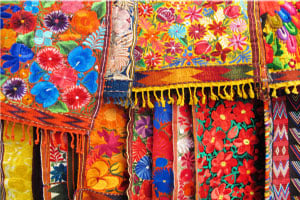 |







